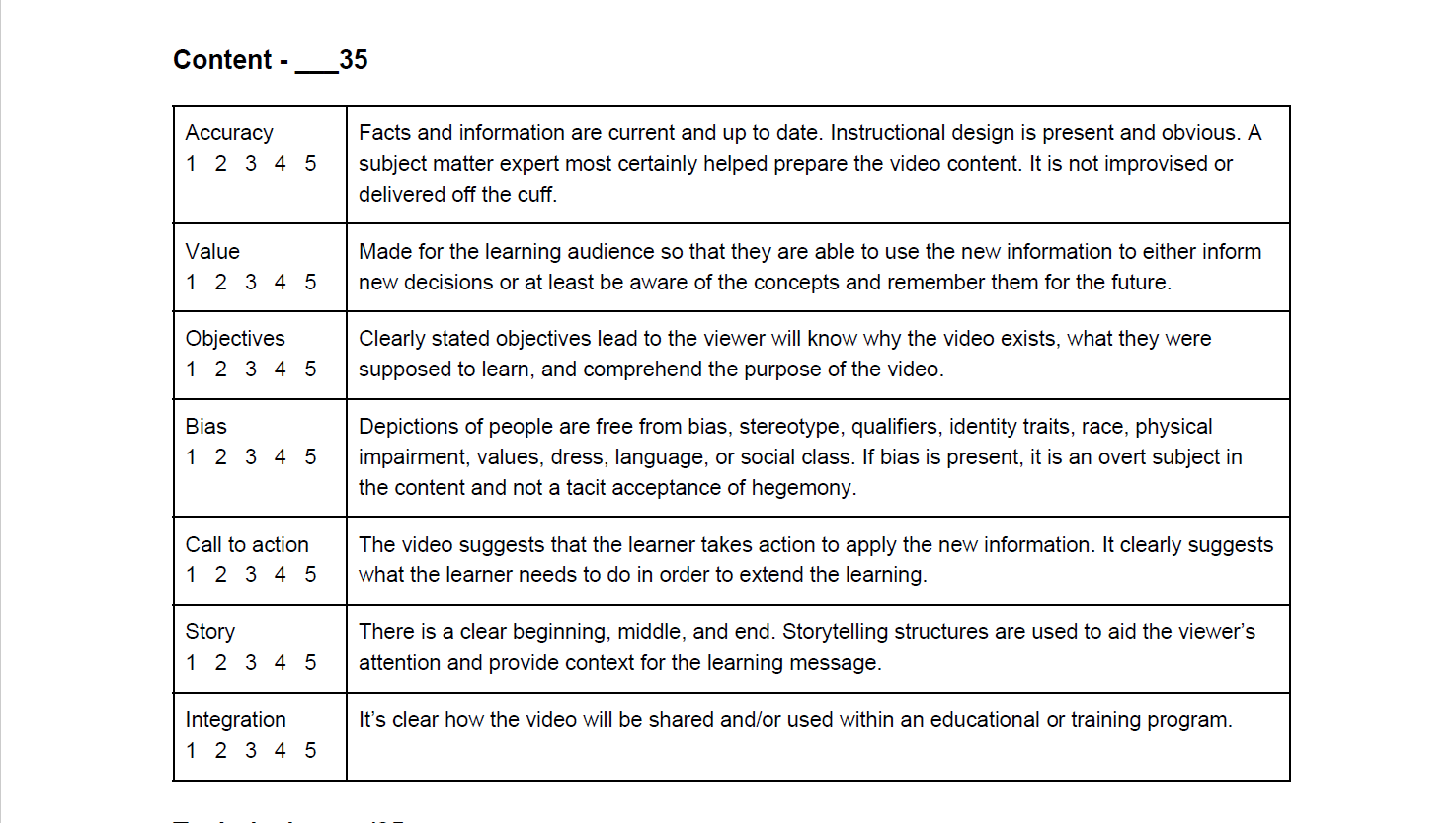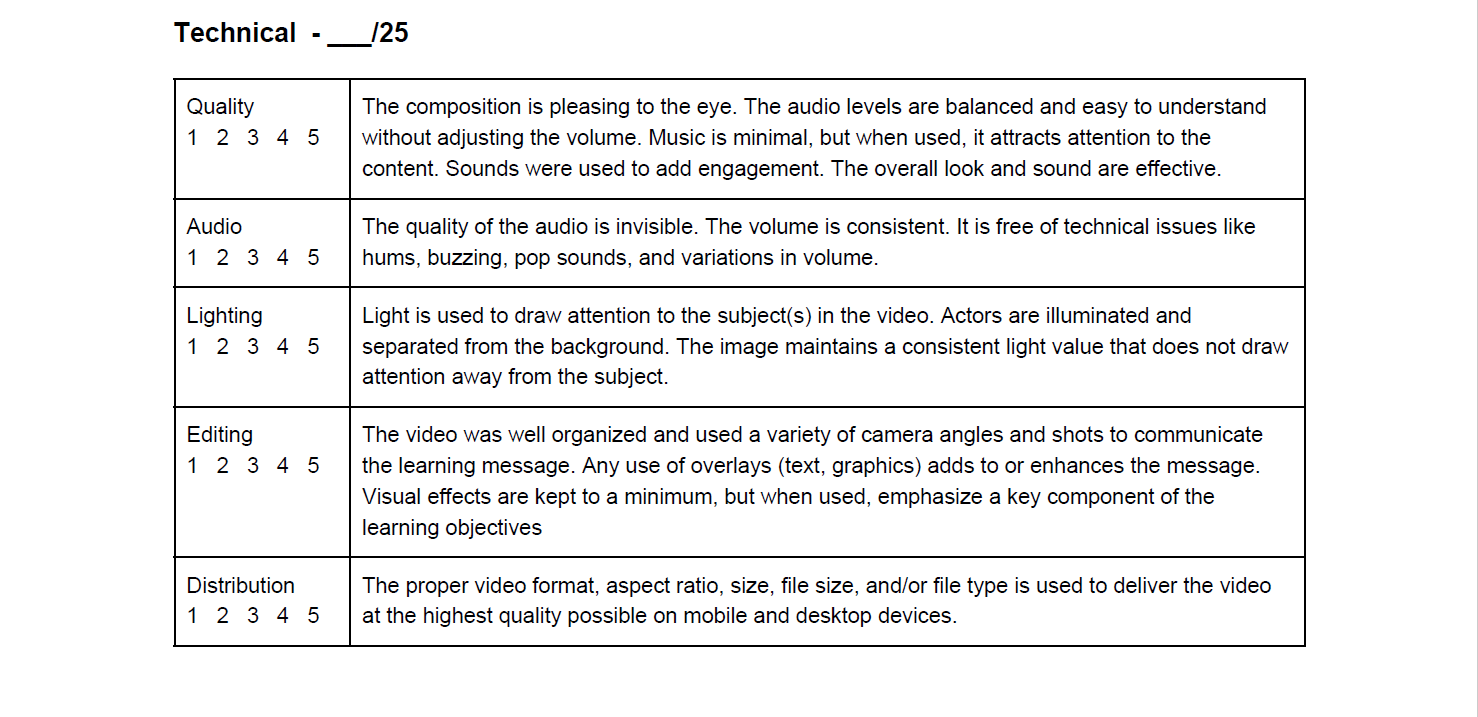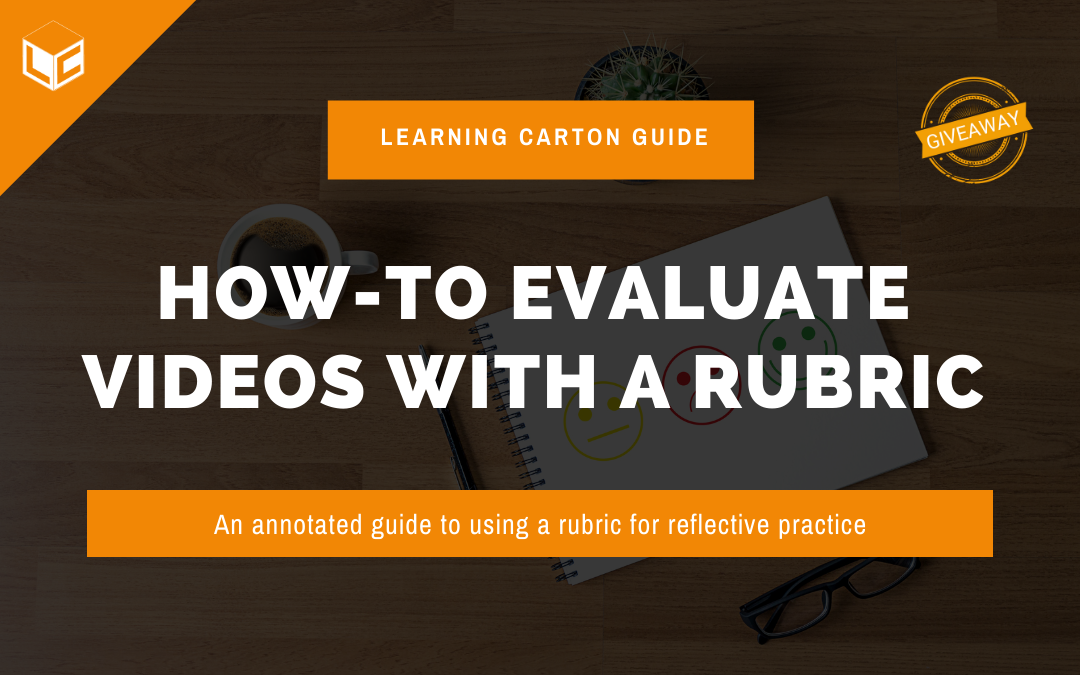Evaluating learning videos is easy with a rubric. Reflecting upon effectiveness is also easier if you use the same tool to measure all of your videos. Therefore, I offer you a method to evaluate learning videos using a rubric that will help you improve the KSB (Knowledge, Skills, and Behaviors) of your learners.
FYI: I’m on a mission to help people make and use video for learning purposes. If you are making a learning video for yourself or for a client, then you are managing numerous moving parts. By always beginning with the end in mind (guided by a rubric), you will be on your way to creating video content that will boost the KSB of your learners. If you are managing a team and need to evaluate your video content, then using a rubric will help your entire team align their feedback around a common goal.
Let’s get to it!
The main purpose of rubrics is to assess performance.
-ASCD
How to Evaluate Learning Videos with a Rubric
Using a rubric will help you set a consistent standard for your learning video content. By evaluating content the same way for every project, you will be efficient and objective – every time. Below, I offer an annotated path to evaluate learning videos with a rubric. Each section of the rubric is captured in a screenshot followed by a brief explanation and several questions you can ask yourself to aid in completing the said section. Download the rubric and use it with your existing content or on your new videos. Then, let me know how it goes. Feel free to modify the rubric to suit your needs and attribute the original rubric to Learning Carton.
Purpose

The purpose is the first thing you want to identify in each video you evaluate. Ask yourself these questions and then circle the appropriate word.
- Knowledge: Is the video designed to create awareness on a topic? Examples: teach product knowledge, explain a process, share information about a topic
- Skills: Is the video designed to demonstrate a skill or show someone how to act (behavior modeling)?
- Behavior: Is the video designed to change the learner’s behavior by requiring the viewer to make informed decisions?
The purpose of the video should be clear and concise. Can you easily state the purpose in a single sentence?
Type of Video

Next, you should circle the type of video. What type of learning video is it? Check out The 6 Types of Video for Learning if you need a further explanation of the types. If you feel the video is not one of these six types, then it may not be a learning video at all.
Content

As you start to deep dive into evaluating the learning video look for these seven categories. Read this section carefully before you watch the video and have the rubric on paper or a nearby screen as you watch. Your goal is to openly and honestly rank the video by answering these questions:
- Are facts and information up to date? Is it organized and clearly delivered?
- Does the video present value by offering information designed for the learning audience?
- Are the learning objectives clearly stated or easily accessible?
- Is the content free from bias?
- Is there a call to action that implores the learner to do something to extend their learning?
- Is there a story structure to the content? Beginning-middle-end.
- Is it clear how the video is meant to be shared with the audience?
Technical

Now it’s time to evaluate the video’s visual merits. This is the last thing you should evaluate; thus, this is the reason it is at the end of the rubric. Training and learning video is not made with Hollywood budgets. It’s not necessary! You can learn how to do something from a video someone made in their house using their cellphone! Learning video should adhere to professional skills in production, but it is not as important as the content and purpose. That being said, rank your video’s technical score with these questions:
- How is the overall look of the video? Is it pleasing to the eye?
- Is it easy to understand the audio? Is the volume consistent? Is the audio free from imperfections?
- Are the visuals composed nicely so that the program is engaging to look at for a long period of time?
- Does lighting enhance or distract from the subject in the video?
- Are there too many effects? Are graphics used to support the message?
- Is the video the same size throughout or do you see black bars and boxes on the sides or top?
- Is the video quality sharp?
Total Score

The total score is not a pass/fail or letter grade. Please don’t view your score as high praise or crippling criticism. Instead, I urge you to reflect upon the score so that you can alter the content in the video to make it more effective for your audience. Remember, your ultimate goal in making a learning video is to improve the knowledge, skills, and behaviors of your learning audience. This learning video rubric will help you evaluate learning videos so that you keep the KSB promise!
Summary
Now that you have the rubric and this annotated guide, it’s time to reflect upon your already made content or plan your next project. Try out the rubric. If you find that the purpose, type, content, and technical categories need a slight tweak, then make the change to the rubric so it suits your needs. This rubric is meant to support your learning as you strive to make better learning videos for your audience.
Join my learning pals
How do you use rubrics to inform your learning practices? Share your voice with me.
Join my learning pals. Please subscribe to my newsletter to receive free learning resources delivered to your inbox every two weeks.
THE END


